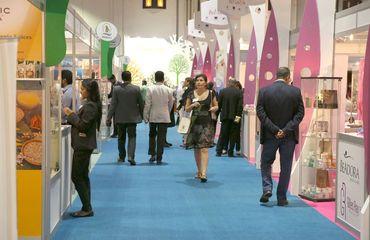São Paulo – The United Arab Emirates is one of the target markets for the Brazilian organics industry, whose exports reached approximately USD 130 million last year, according to data from Organics Brasil, a program of the Brazilian Export and Investment Promotion Agency (Apex-Brasil) to advertise the local industry around the world.
The program’s director Ming Liu said the Arab country could be a major consumer of organic products: “Especially Dubai, where there are lots of expatriates, tourists and visitors to boost demand for this type of product,” he explains.
Organics Brasil is planning a prospecting mission in the UAE in the second half of the year. The goal is to map out the market, and maybe incorporate the MENOPE (the Middle East Natural & Organic Product Expo), set to take place in November in Dubai, into the program’s annual schedule from 2018 onwards.
Liu went to Dubai a few years ago and witnessed a growing demand for organics. “Our biggest challenge is to persuade businesses to bet on this market,” he says. Currently, the top buyers of Brazilian organic products are the United States, Germany and France – and those are the countries that Brazilian companies focus their efforts on. “Since we are going through a crisis, they don’t want to take chances.”
Organics exports from Brazil to the UAE are timid: “They fall short of USD 2 million,” says Liu. But there are advantages that explain the interest from Organics Brasil in the Gulf market. The main one is the fact that product certification is easier in the UAE: other nearby countries require each ingredient to be certified separately.
“Imagine a cereal bar, which comprises several ingredients, some of which are even imported. Having to certify them one by one is a more laborious process. That is why Brazilian companies will often export more basic-type products,” explains Liu, who mentions organic sugar, nuts, honey and fruit as the top-selling items.
Last year, organic product exports from Brazil climbed by 15% in volume, although revenue remained flat due to a change in the product mix and to exchange rate fluctuations.
*Translated by Gabriel Pomerancblum




